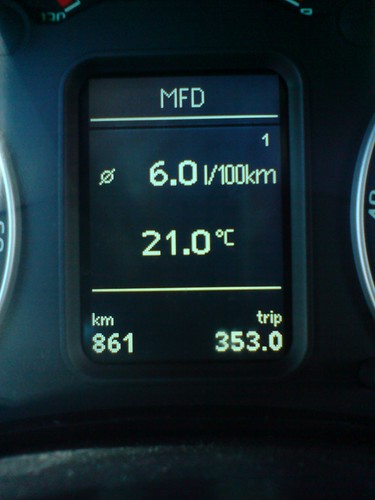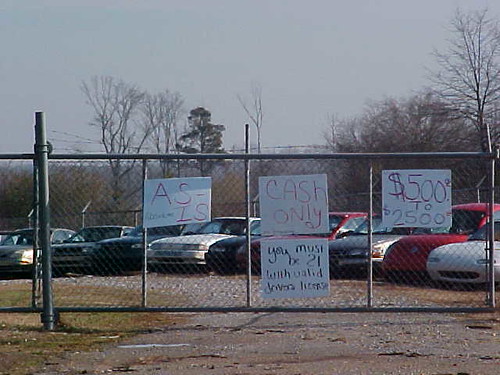(Source: Spiegel Online via Business Week)
To boost ailing carmakers, the British government is expected to offer customers a premium to exchange clunkers for new vehicles—as Germany has done
Britain has indicated it may be the next to join a growing list of European governments that have launched special stimulus programs aimed at shoring up a flagging automobile sector. The
Times of London reported on Sunday that British Chancellor of the Exchequer Alistair Darling plans to present a draft of a
“scrapping scheme”modelled after Germany’s successful cash for clunkers program when he presents his budget on April 22.

The paper writes that Darling and officials in the Treasury have been impressed by the results the programs have delivered in other countries. Last month, Britain experienced a 30 percent drop in new car registrations at a time when Germany recorded 40 percent more vehicle sales than during the same period a year earlier. In Germany, Treasury officials noted, the precipitous drop in auto sales has been reversed.
The Times reported that details are still being hashed out between the Economics Ministry and the Treasury in London, but that the plan will look a lot like Germany’s. According to the paper, a £2,000 (€2,200) scrapping premium is to be given on trade-ins of any car over nine years old.
In contrast to Germany, though, Darling and Economics Minister Peter Mandelson are also seeking industry participation in the program. At the very least, they want a binding commitment that existing rebates will not be dropped because of the government program. So far though, the paper reports, the British automobile industry is resisting the government’s push for it to support the program with its own means.
In addition to Germany, a number of European countries including Austria, France, Italy, Portugal and Spain also have stimulus programs in place for carmakers suffering from thecredit crunch and global financial crisis—and the success of these stimulus efforts has been measurable. China and Brazil have also succeeded in increasing car sales again.
“A scrapping scheme will provide the incentive needed and the evidence is clear that schemes already implemented across Europe do work to increase demand,” Britain’s Society of Motor Manufacturers and Traders (SMMT) chief executive Paul Everitt told the Times. “The UK is the only major European market not to implement a scheme.” SMMT estimates the one-year program would cost about £160 million.
Last week, the United States also said it would adopt the successful European recipe. During a dramatic speech to the auto industry, US President Barack Obama praised the scrapping premiums as exemplary and “successful” and pledged to introduce a similar program in the US. But the program could be a lot more expensive for the United States than Britain: Already, an estimated 250 million cars and trucks are driven in America. Of those, close to 30 percent are at least 15 years old, meaning the country could have as many as 75 million candidates for scrapping.
In Germany, demand has been so strong that the government plans to extend its scrapping bonus through the end of the year. Last week, Chancellor Angela Merkel’s cabinet moved to extend the scheme until Dec. 31 and to provide €5 billion in government funding—enough to cover up to 2 million cars.
Click here to read more. Transportgooru has already published a number of articles on this topic in earlier months. Please feel free to explore them:
Consumer Assistance to Recycle and Save (CARS) Act revives “Cash for Clunkers” scrapping plan in U.S
Germany plans to extend Abwrackprämie aka “Environmental Bonus”
The bickering starts over the implementation of the Cash for Clunkers legislation
Obama Favors “Cash for Clunkers”
Germany increases subsidy to 5 Billion Euros, tripling incentives for its “Cash for Clunker” (Abwrackprämie) program








